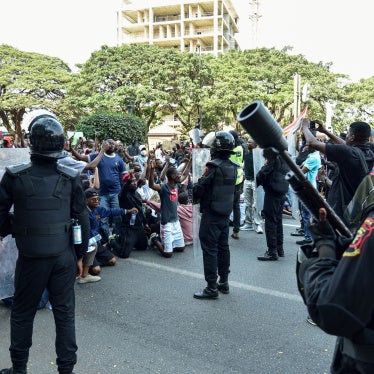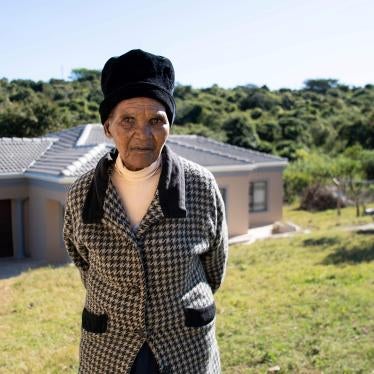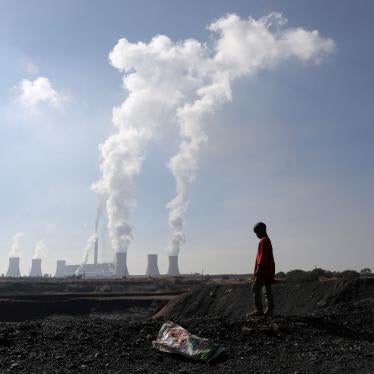(Johannesburg) - South Africa has a major opportunity to promote human rights protections at home and abroad as it joins the United Nations Security Council, Human Rights Watch said today in releasing its annual World Report 2011, a survey of human rights developments around the globe.
The 649-page report, Human Rights Watch's 21st annual review of human rights practices worldwide, summarizes major human rights issues in more than 90 nations and territories, reflecting the extensive investigative work carried out in 2010 by Human Rights Watch staff. In the report's chapter on South Africa, Human Rights Watch describes a few worrying trends in the country's human rights landscape. At home, the government tried to put forward measures that could impose state censorship. It also has shown inconsistency in promoting human rights standards elsewhere in Africa.
"South Africa boasts a democratic government, robust economy, and progressive constitution, so it has the potential to be a global human rights leader," said Sipho Mthathi, South Africa director at Human Rights Watch. "But it has been uneven in realizing that potential. The government needs to make rights concerns a priority."
During 2010, the government moved to restrict the flow of information, Human Rights Watch said. In April, the Department of State Security sent for parliamentary consideration the Protection of Information Bill (PIB), to prevent and penalize disclosure of state secrets. The bill, which is undergoing revision, would give the government broad powers to classify information and impose jail terms of up to 25 years for publishing classified information. The ruling African National Congress (ANC) party, for example, also resurrected a proposal to form a Media Appeals Tribunal, which would enable the government to regulate and possibly constrict freedom of expression, but the tribunal's creation has not moved forward.
"One of South Africa's greatest strengths is its commitment to the free flow of information," Mthathi said. "These recent proposals should give us pause, as they seem to suggest that the government endorses censorship."
In international dealings, South Africa's Department of Home Affairs demonstrated positive leadership in extending the stay of millions of Zimbabwean immigrants, who faced imminent deportation as South Africa sought to regularize the status of these migrants. Zimbabweans may now remain in the country through the end of July 2011 and have the opportunity during that period to apply for asylum or temporary residence permits.
Although President Jacob Zuma took a bolder approach to the Zimbabwe political stalemate than did his predecessor, this engagement produced few results, Human Rights Watch noted. South Africa has not publicly pushed Zimbabwe to embark upon promised human rights reforms, nor has it condemned ongoing violations, including abuses connected with the current constitutional outreach process and military involvement in diamond mining abuses in Marange. It has, however, played a more positive role in encouraging the recent peaceful referendum for Southern secession in Sudan.
The introduction to Human Rights Watch's World Report 2011, written by Executive Director Kenneth Roth, discusses the increasing use of private "dialogue" and "cooperation" by many governments as a substitute for putting pressure on human rights abusers.
Human Rights Watch urged South Africa to resist that trend. The current crisis in Côte d'Ivoire is one such example where the flawed approach should not be adopted despite indications that certain key African states may be backing away from the international consensus that Laurent Gbagbo is resorting to violence and intimidation to maintain his hold on the presidency against his rival, Alassane Ouattara.
"The Côte d'Ivoire case is an important test for South Africa and other regional leaders," Mthathi said. "If South Africa can't act boldly and in solidarity with governments who are taking a stand here, how will it provide meaningful leadership on Zimbabwe, throughout the continent, and beyond?"








